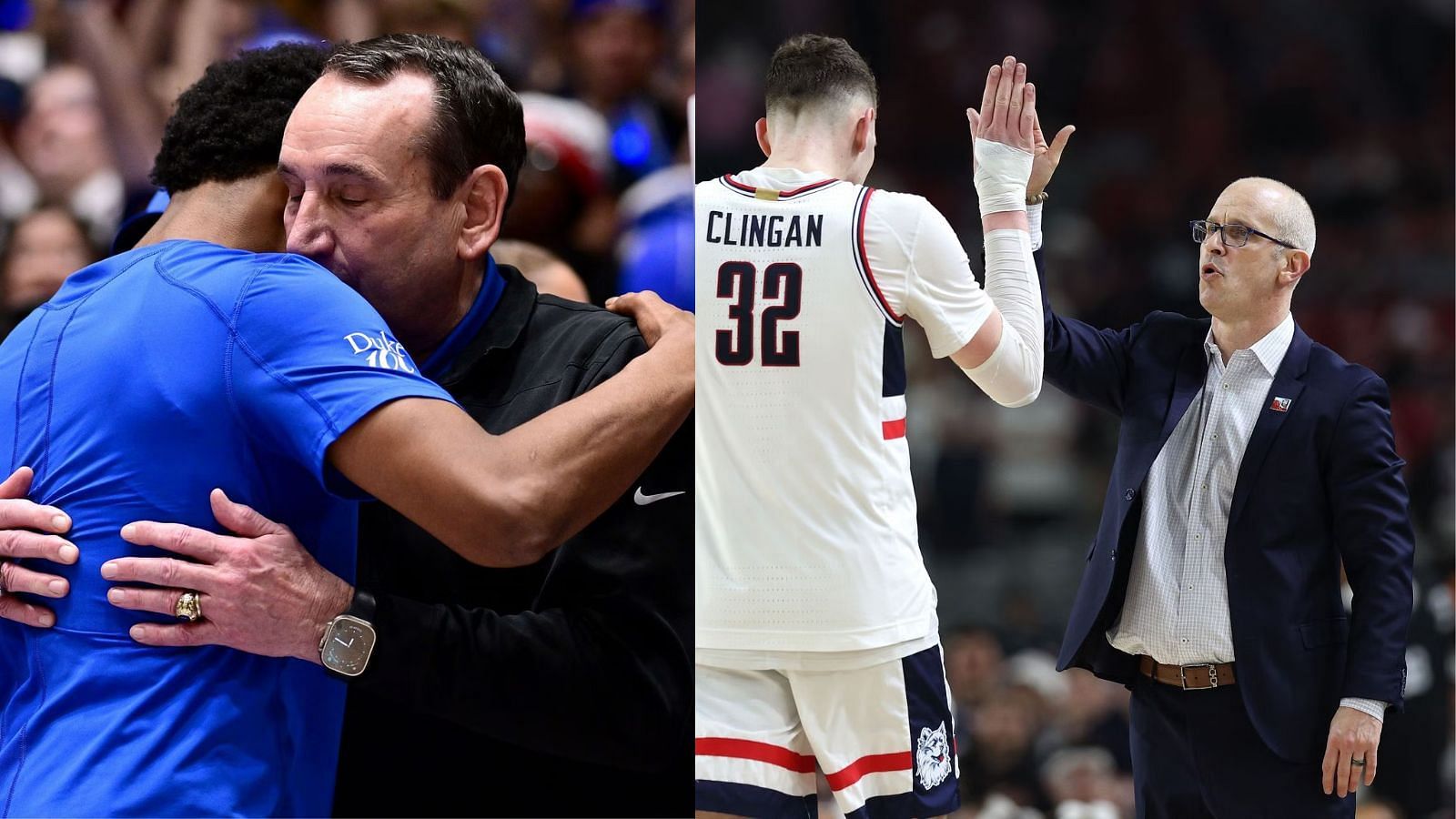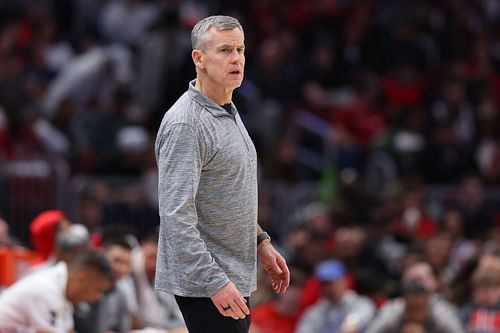
Top 5 schools to win back-to-back NCAA national championships ft. UConn
In college basketball terms, the only thing harder than winning a championship is winning back-to-back championships. By completing back-to-back titles, huskies-football" target="_blank" rel="noopener noreferrer" data-is-sponsored="false">UConn became just the eighth program to have ever done so. It was the first repeat since Florida in 2006 and 2007, and just the second repeat of the century.
While eight programs have won multiple consecutive titles, it's certainly gotten harder in recent years. In the days before early entry to the NBA, the transfer portal, and a 64-team NCAA Tournament, winning consecutive titles was certainly easier. So, here's a ranking of the top five repeat college basketball champions within the sport's modern era.
Top 5 schools to win back-to-back championships

5. Cincinnati (1961-62)
In the early 1960s, the Cincinnati Bearcats won back-to-back titles. The relative recency is why Cincinnati makes the list and more ancient repeat champions Oklahoma State (1945-46), Kentucky (1948-49) and San Francisco (1955-56) don't. The titles came just after basketball legend Oscar Robertson finished his career at UC.
New coach Ed Jucker's 1961 team started 5-3 and then ran through a 22-game winning streak, beating Ohio State in overtime to claim the title. Cincinnati again beat Ohio State for the title the following year.
4. Florida (2006-07)
Billy Donovan's Gators won back-to-back titles by keeping together a young core. The 33-6 Gators won in 2006 by besting bruins" target="_blank" rel="noopener noreferrer" data-is-sponsored="false">UCLA. They had just one senior on their roster, who was a bench player. A season later, the same players went 35-5 and beat Ohio State for a second straight title.
Joakim Noah, Al Horford, Corey Brewer, Taurean Green and Lee Humphrey averaged double-figure scoring in both title seasons. Florida actually had only three seniors on the 2007 team, including Humphrey. But Noah, Horford and Brewer were all first-round NBA draft picks in 2007.
3. Duke (1991-92)
Duke's first two NCAA championships were back-to-back titles. After getting blasted by UNLV in the 1990 NCAA title game, Duke bested the Rebels in the 1991 semifinal and then beat Kansas for the title. The 1992 team bested Michigan's Fab Five in the finals.
Duke built around a solid core of players with Christian Laettner, Bobby Hurley and Grant Hill. Their run included that massive upset of UNLV in 1991 and besting Kentucky in perhaps the greatest college basketball game ever in 1992. Coach K built from there, but Duke's repeat titles started a dynasty.
2. UConn (2023-24)
Given the transfer portal and the modern era of college basketball parity, UConn's back-to-back titles might not be repeated soon. The 31-8 Huskies of 2023 blew through the NCAA Tournament, winning each game by at least 13 points. The repeat run was a 37-3 march, and the Huskies won every game by at least 14 points.
UConn overlapped some key players like Tristen Newton, Alex Karaban and Donovan Clingan. But the first squad included Adama Sonogo and Jordan Hawkins while the second had Cam Spencer and Stephon Castle. Still, Dan Hurley's run of NCAA dominance will be difficult for anyone else to equal soon.
1. UCLA (1964-65, 1967-68-69-70-71-72-73)
It should be apparent why UCLA's NCAA repeat run is unique. Nobody else has won three NCAA titles in a row. But UCLA won seven in a row (and 10 in 12 years). That streak encompasses the three-season (no freshman eligibility) career of Kareem Abdul-Jabbar and the first two seasons of Bill Walton's career. The Bruins won 38 consecutive NCAA Tournament games.
Included within the run was an 88-game overall winning streak and four perfect seasons. Granted, John Wooden kept his players for their full eligibility and coached in a world without a shot clock or a 3-point line. But what UCLA accomplished will probably never be equaled.
What would have to change for college basketball to again have a dynasty of seven straight titles? Would the adoption of a prep-to-pro allowance like college baseball make it work?